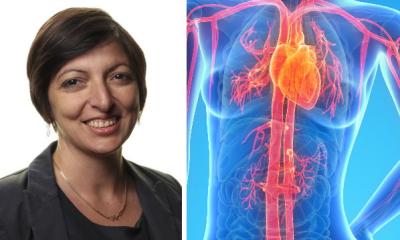Osteoporosis test to predict Heart Attacks
According to a recently published study in the Journal of Bone and Mineral Research, a vertebral fracture assessment (VFA) examination can be used to measure abdominal aortic calcification (AAC). The level of AAC can predict the likelihood of myocardial infarction as well as stroke among elderly women, independent of other clinical risk factors.

Previous work has shown that VFA scans are a cost effective method in many postmenopausal women to detect vertebral fracture, and prescribe osteoporosis treatment medication when such a vertebral fracture is seen. This study now called “Abdominal Aortic Calcification Detected on Lateral Spine Images from a Bone Densitometer Predicts Incident Myocardial Infarction or Stroke in Older Women”, indicates that physicians should use the opportunity of VCA scan to look for evidence of cardiovascular disease.
“This is particular important since two-thirds of women who died suddenly of coronary heart disease have no prior symptoms”, says lead author, John, Shousboe, M.D. of Park Nicollet Health Services in Minneapolis.
His co-author, Eugene McCloskey, M.D., of Sheffield University, UK, added: “This study found that AAC had a similar predictive strength for CVD as the Framingham Point score that combines the traditional risk factors of total cholesterol, HDL, blood pressure, hypertension treatment and smoking to predict 10-year cardiovascular heart disease risk. Moreover, we found that this predictive ability of AAC was independent of all of the traditional CVD risk factors we collected in the study.”
Since heart attacks and stroke are the first and third leading causes of death in postmenopausal women and bone densitometry is indicated for all women age 65 and older, VFA imaging offers a reliable opportunity to visualize AAC and capture this important risk factor in those women undergoing bone densitometry at very little additional costs.
18.12.2007
More on the subject:





